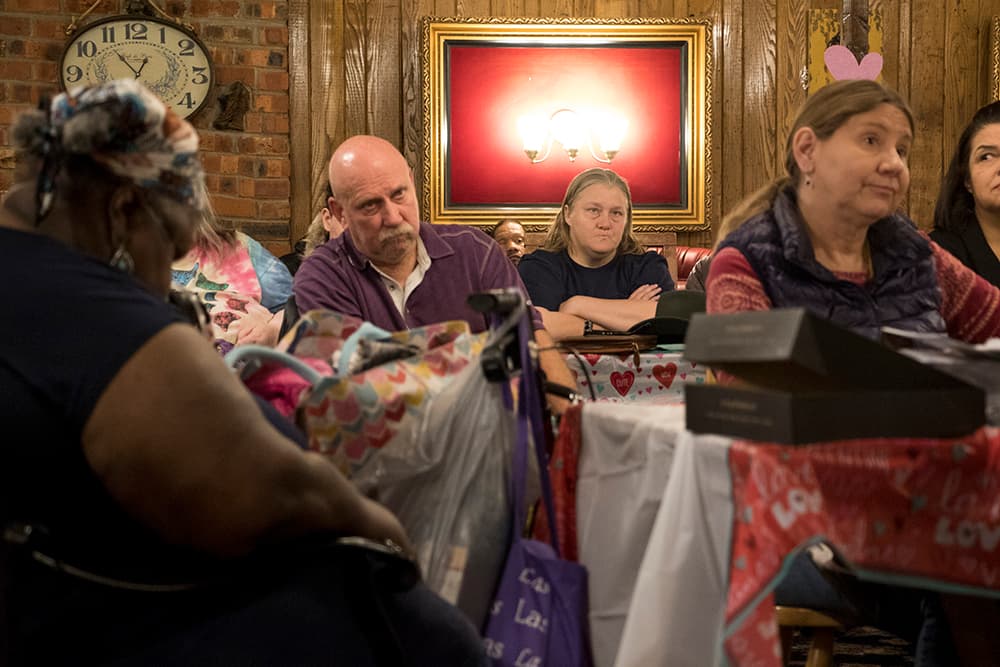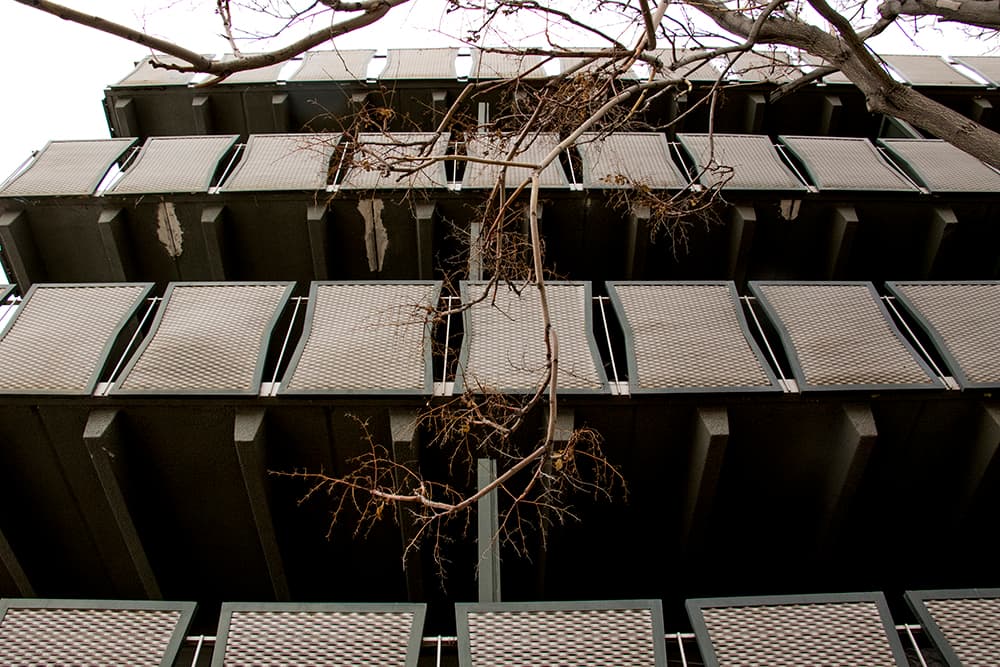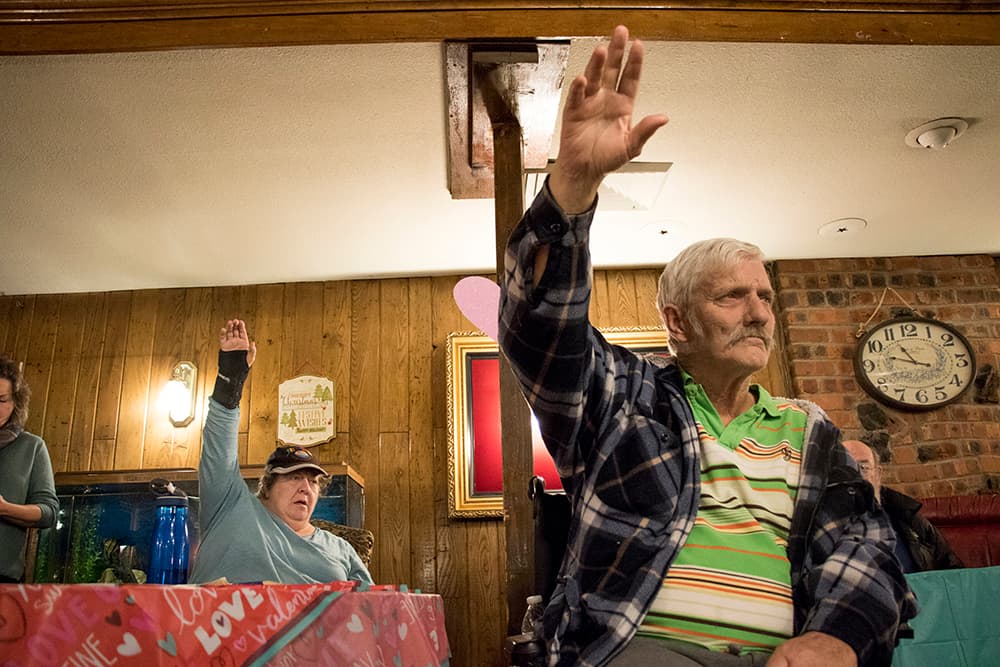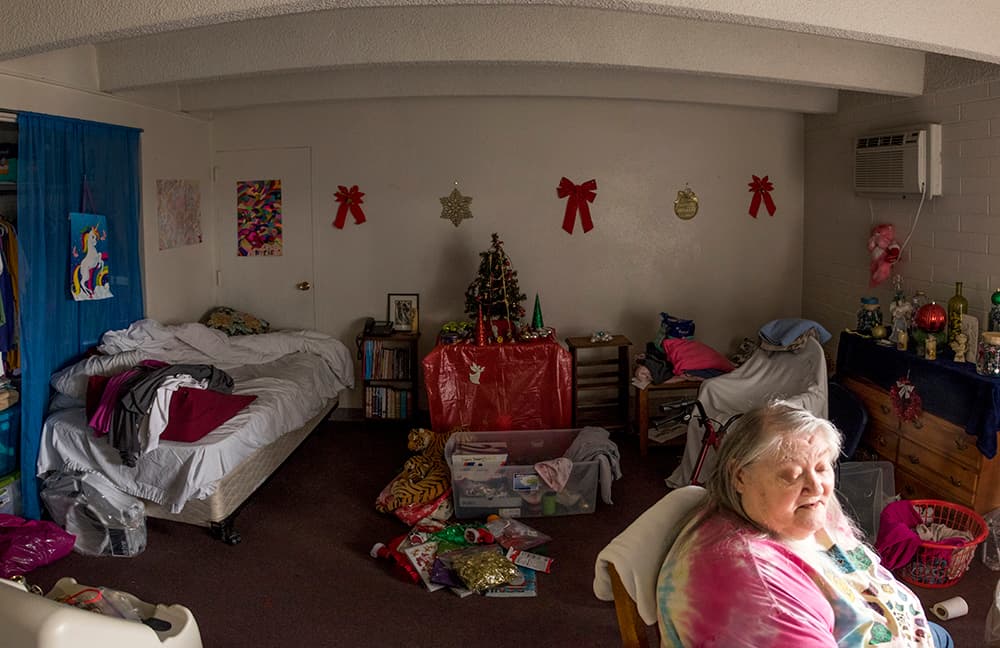
Little changed at Golden Manor for nearly 30 years, from its wood-paneled walls to the members of its staff, most of whom have served their entire careers in this old motel building.
Today, it's an assisted living facility -- one of the largest in Denver where elderly people with low income and people with disabilities can use Medicaid and other benefits to pay for a room and services. It is a community of "misfits, honest to goodness," and a family, as one staffer put it.
On Thursday morning, its 66 residents, seated in its homey dining room, learned about the change approaching: They'll have to leave their home early this year before it's likely redeveloped.
"Me? I don't want to leave," Doris Wascher told the room. "This is my home. Where else am I going to go -- out in the streets, like my kid?"
The residents heard repeated promises that no one would end up homeless, but there were few other promises. They were told they'd be moving into smaller rooms, perhaps outside Denver. It will be a huge effort to find them all new homes.
"This isn't something that happens very often, at least in a community of this size," said Shannon Gimbel, ombudsman program manager for the Denver Regional Council of Governments.
It's a strain of the housing crisis that has seen little attention and yet promises significant consequences, according to Mary Lou Faulkner, who has run the facility for decades.
"A lot of these clients were on the streets, and then they came here," she said. "They're going to go right back to the streets, some of them, of their own choice, and be right back to square one ... It’s just a nightmare."

Longtime owner Ronald Saykaly sold the Golden Manor building in October for an undisclosed sum.
Saykaly sold the property because he was in poor health, Faulkner said. (He could not be reached for comment.) Legally, the new owners are free to redevelop the property. The only requirement under state law is that they give 30 days notice before residents must leave, experts said. They plan to give significantly longer than that.
"We all acknowledge this is not fun. This is not what we want to do," said Benjamin Hrouda, representing the building's new ownership.
"Then why are you doing this?" came a chorus of replies.
"Quite simply, the business of Golden Manor is not sustainable," Hrouda explained a moment later. Most of its residents are recipients of Medicaid, the government program for people with disabilities. The money provided by Medicaid hasn't kept pace with the cost of living, he said. (Hrouda also doesn't have any background in Medicaid.)
Previously, the sellers of the land described it as a “redevelopment opportunity” in a “rapidly gentrifying neighborhood” just south of Sloan's Lake. Hrouda declined to say what his group is planning for the land.
Residents say they were told they must leave by the end of April. Hrouda declined to detail an exact timeline, but he said that the owners would "provide as much support as we possibly can," including moving assistance and extra time for residents to move if necessary.
"If that is 95 days, 120 days, we're going to be flexible in that," he said. Advocates are already placing residents on waiting lists at other facilities.

Still, anxiety escaped in outbursts and pointed question throughout the meeting.
"Do you have a place for me?" Joyce Radum asked several times, raising her hand each time. "Of course they do, Joyce," a visitor told her reassuringly.
"What if we don't have a place when it comes?" an older man asked.
"I just want to know -- why did the owners pick this building to tear down?" another woman added.
Advocates don't know where the Golden Manor residents will go.
They aren't sure yet how many spots are available right now in various assisted-living facilities, Gimbel said. What's certain is that the closure of Golden Manor will further strain the limited local network of such housing.
With 70 beds, Golden Manor made up about 7 percent of the assisted-living housing supply for people using Medicaid in Denver, per my review of state records. It's one of just a handful of large facilities of its type in the county.
Since news of its closure broke, various facilities have contacted Golden Manor with offers to take residents. Very few have been in Denver, Faulkner said; the closest hits have been in Aurora.
"The April timeframe is actually pretty short, especially for people who are chronically mentally ill," said Chris Watters, a registered nurse who has worked with Golden Manor. " ... Ownership needs to take responsibility."
And even if everyone can be moved in time, they'll likely have to accept some unwanted changes. Some facilities don't accept cats. Many don't offer the large, private bedrooms of Golden Manor. Some don't take people with diabetes, Faulkner said.
Ultimately, this community will end up scattered across multiple counties. Even those in romantic relationships may be split up.
"We have couples here, and we love them, but right now, every one of them is getting split," Faulkner said.
A woman named Marie, who declined to give her last name due to personal safety concerns, said her brother had finally found peace at Golden Manor. Now, she wondered if he would lose that -- and when the change would stop.
"That's what's scaring me about the gentrification. If this place is closing, the next place will close," she said. "... They're throwaway people in society. It's not OK. People still care about them."

"I am deeply troubled that you guys are in this situation," said Councilman Rafael Espinoza.
At the Golden Manor meeting, he questioned why the city had $1.3 million to buy a vacant strip club on East Colfax and $6 million for a traffic technology test, but not enough money to buy Golden Manor.
"We actually have this facility here that we should have prioritized rather than a vacant business in a different part of town," he said, referring to the strip club.
Reached for comment, city officials said that the city "was not involved in sales negotiations for this property." While the city sometimes has a "right of first refusal" on low-cost housing, that law didn't apply in this case.
"The City and its partners are collaboratively exploring how to maintain affordable units throughout the city through education, better regulations, outreach and innovative financing tools to incentivize owners to preserve affordable units," wrote Office of Economic Development spokesman Derek Woodbury in an email.
Julie Reiskin, executive director of Colorado Cross-Disability Coalition, said that she hasn't seen many losses of assisted living at this scale.
"I expect it to become more common, particularly as real estate gets more valuable," she said. And it won't be easy for people to find replacement housing, she said.
"If you need something that’s wheelchair accessible or anything more than the very basic … those are all really, really hard. I’d be very surprised if all those people are going to find decent assisted living to stay in," she said.
Anne Meier, state long-term care ombudsman for Disability Law Colorado, said that it's impossible to say how all this will end.
"It's concerning," she said. "In fact, it's alarming."
And Faulkner, who has run the facility for decades now, asked why exactly it all had to change.
"How did we make it for 30 years, up until October?" she asked as she saw off guests at the reception desk of the aging building.











